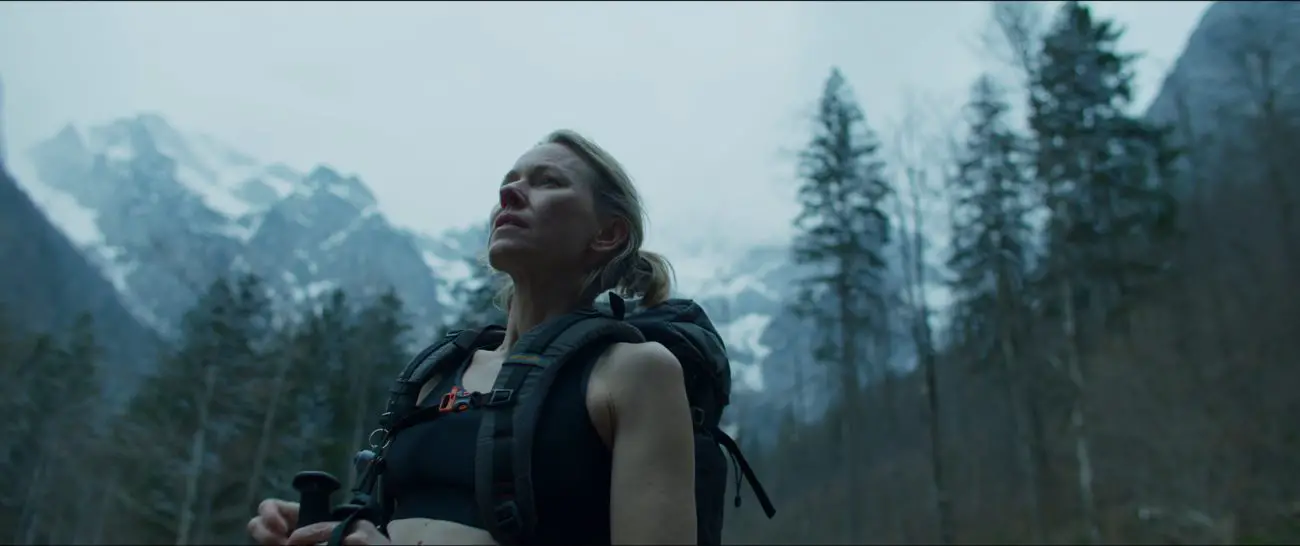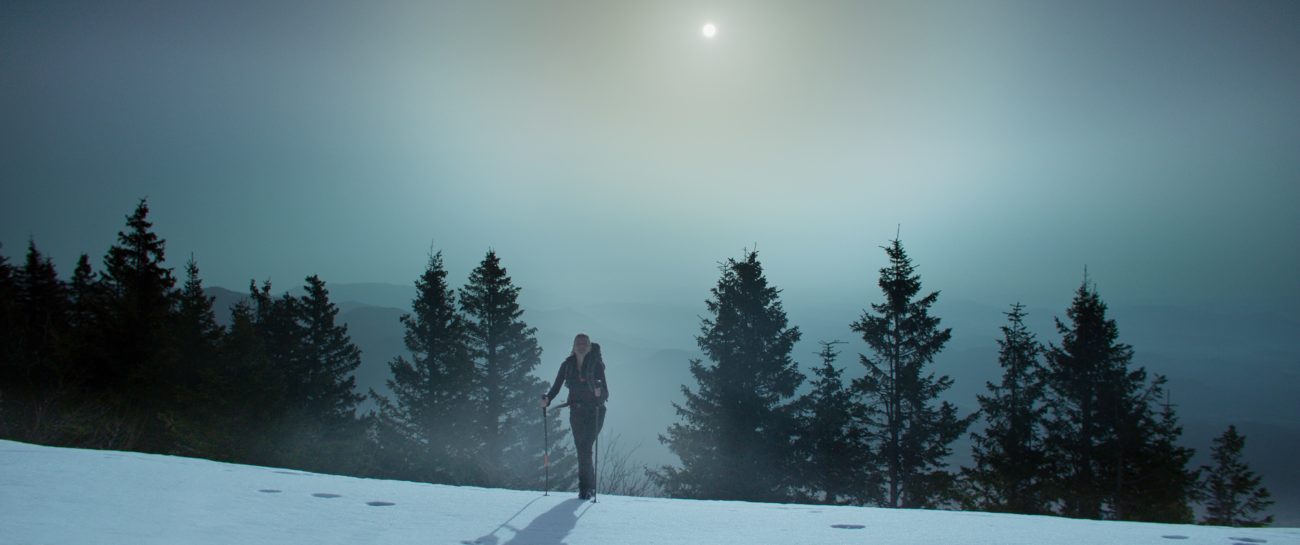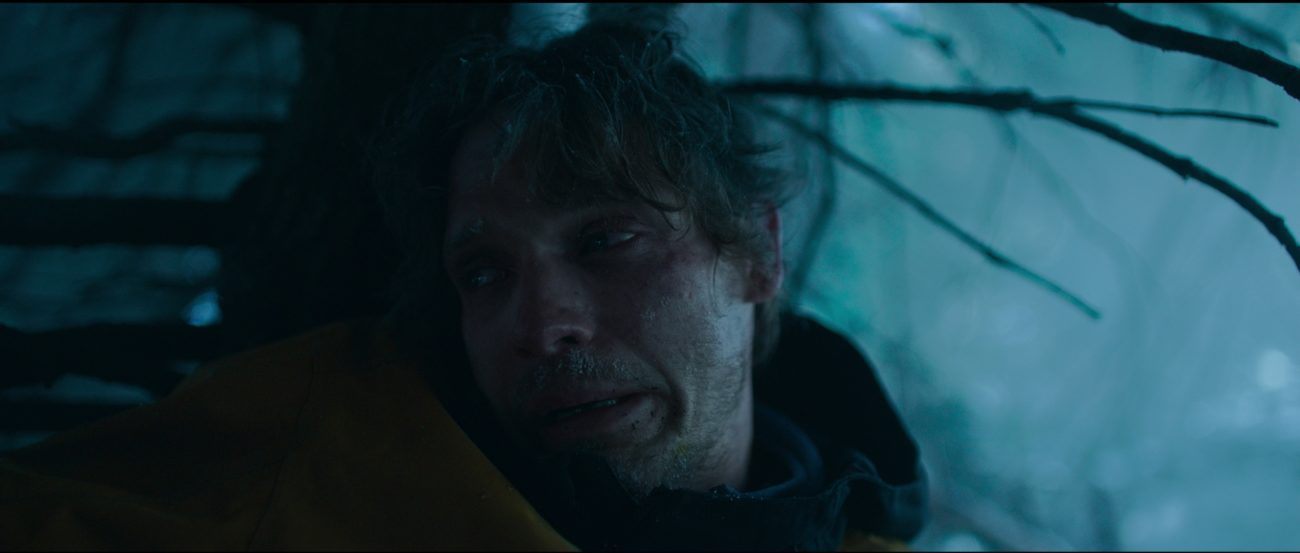If last month’s thriller The Desperate Hour did not satisfy your yen to see a game, wiry Naomi Watts on a harsh, physical adventure, largely isolated from contact with society and traversing a rugged, challenging terrain on foot and under extreme duress, well, here’s a second helping. Infinite Storm, out now in theaters, takes Watts to her limits, once more, this time to the snow-capped peaks of New Hampshire’s White Mountains, where she must confront inner demons and physical challenge to rescue a stranded, injured fellow climber.

The Desperate Hour provided a perfectly serviceable narrative conceit to place Watts alone against nature, and the veteran actor is one of the few whose range and ability can carry a storyline nearly by themselves. Frankly, given Hollywood’s long history of producing films by men about men (and of course, heteronormative cisgender men at that), a pattern the Geena Davis Institute has thoroughly documented, it’s more than a little refreshing to see stars like Watts not age out of romantic-lead roles but instead carry the physical burden of action-adventure pieces like The Desperate Hour and Infinite Storm.
Here, Watts stars as Pam Bales, a nurse and mountain guide prepping for a sojourn to the peak of Mount Washington. An experienced climber and member of the local search and rescue team, Bales knows her preparations well: sturdy boots, extra clothing, two hot thermoses, protective goggles, Clif bars, and more. There is, though, the matter of her memories, images and mementos of her two young daughters that briefly and infrequently interrupt her trek.
You may have guessed from the film’s (unsubtly hyperbolic) title and blizzardy imagery that Bales’ hike is quickly turned into a deadly challenge. An early season squall turns into a deadly storm packing 80-mile-an-hour winds. An experienced climber knows when to turn back, but just as she does, she spots sneaker footprints in the snow, a sure sign of someone without the protection or knowledge to survive the storm.

And this is where the film is at its very best, in portraying the harsh conditions of the mountain blizzard and the physical fight against the elements for survival. Every step is a risk, every breath an effort. The cinematography and editing adeptly and thrillingly convey Bales’ two-steps-forward, one-steps-back search-and-rescue effort. Polish director Małgorzata Szumowska and her team—especially director of photography Michał Englert and editors Agata Cierniak and Jarosław Kamiński—create an immersive, hyper-realistic, and wholly thrilling mountain-survival experience on par with any action film.
In fact, Bales’ woman-against-nature challenge is complicated further by the subject of her rescue when she finds him, half-frozen and semi-conscious, dressed in cargo shorts and a slight windbreaker on the mountain’s precipice. Rather than welcome her rescue, surprisingly, he fights Bales, every step of the way, for reasons that become clear only at the film’s conclusion. His resistance makes her plight even more compelling.

Once off the mountain—and with nearly half a film to go—The Infinite Storm becomes less a physical challenge action-adventure survivalist tale and one that confronts Bales’ unresolved inner conflicts. While the protagonist’s mental health is no less important than her mountain rescue mission, it’s a good deal less cinematic. Szumowska and Watts do their best to invest the film’s back half with the kinds of backstory, exposition, and thematics the first half largely eschewed. And while the sources of Bales’ mental trauma and incredible resolve are eventually revealed, the result feels a bit more perfunctory and obligatory than cinematically satisfying. The “infinite” storm, it turns out, was not the one tearing through Mount Washington but Bales’—and her rescuee’s—immeasurable grief.
Infinite Storm is based on the true story of Pam Bales, a woman born near those White Mountains, where she learned to hike and ski and where she volunteered with the local search and rescue team. Mount Washington in particular, at over 6,000 feet, is well known for its unforgiving climate, to some “the worst weather in the world”: in the last century and a half, nearly 150 lives have been lost to its ravines and ridges.
Heroic as Bales’ efforts were, she sought no acclaim. The account of the rescue was made public first in the New Hampshire Union Leader, and then in Bales’ own account in Backpacker, which led to screenwriter Joshua Rollins pursuing the story further and learning about Bales’ own grief and depression. For her to channel her own trauma into her personal triumph and self-sacrifice through her skill and dedication is nothing short of remarkable. Pam Bales is exactly the kind of woman about whom Hollywood needs to tell more stories: hers is one of conviction, courage, and self-sacrifice.
To say, then, that the film Infinite Storm doesn’t quite deliver a coherent, effective cinematic narrative is not to demean Bales’ experience by any means. It’s just that once off the mountain, the film loses the surety of its footing, surrendering to obligations to tell what it couldn’t show. Nonetheless, any fan of Watts’, any aficionado of mountain-set action-adventure films, or anyone clamoring for more female-helmed, female-driven, female-centric narratives will find Infinite Storm a gripping tale of trauma and triumph.



